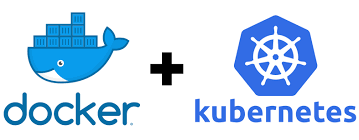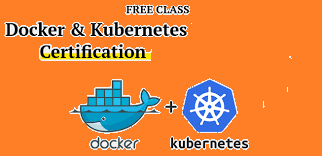
As Kubernetes and Docker are an important part of DevOps, the certification allows leveraging the Docker and Kubernetes thoroughly.
The certification has been made to make the trainee fully capable of being knowledgable and skillful, so the trainee can perform much better than any others.
Having the certification is much more important these days to get a good impression in front of the interviewer. Basically, it shows the capability of yours to perform the assigned task, which means how good you can do or you will be up to the expectations or not.
There are so many benefits of Docker and Kubernetes certification out there which we will talk about later.
Before start let’s understand what is Docker and Kubernetes, so we can understand in a better way.
Certification enables you to leverage the opportunity to get the skills and enhance your knowledge about Kubernetes and Docker as well as to raise the standard of your resume that can help you stand out from the competition.
Certifications are always being like an asset that tells about your expertise and helps you to get a better job in your career.
What is Docker?
Docker is software that lows to build, test, and deploy applications.
Docker is used for packaging and shipping the app and helps to create containers that have everything the software needs to run including libraries, system tools, code, and runtime.
Being running docker over AWS gives developers and sysadmins a reliable, cheap way to build, ship ad run distributed applications at any level.
Containers deliver both an application and configuration, which means a sysadmin doesn’t have to spend more time getting an application in a container to run, compared to when an application is installed from a traditional source.
What is Kubernetes?
Kubernetes helps in managing containers during runtime.
Kubernetes is an open-source tool that helps in managing containers, also known as a container orchestration tool.
It is used for automating container deployment and scaling and descaling containers.
But the question is why would you need a container management tool?
Well, the answer is you’re likely to be not going to work with just one or two containers, you’ll have dozens or hundreds of them and you’ll need some way to manage them, that’s where Kubernetes comes in. This tool was presented by Google in 2014 is and widely considered the most using tool, and is offered on many public clouds like Amazon Web Services (AWS).
Benefits of Docker and Kubernetes certification

Using Docker and Kubernetes together, serve the easiest way to get work done.
Instead of Kubernetes, some companies use Docker swarm as well but the majority of the companies have been working with Kubernetes, that’s why Kubernetes certification is a must.
As I said, Kubernetes is used by the majority of companies, the certification shows its value on its own here.
Certification like the Certified Kubernetes Application Developer (CKAD), Certified Kubernetes Administrator (CKA), Docker Certified Associate (DCA), Docker Advanced Training provides you the immensely( extremely) potential for a better career and salary.
We are not saying it will build your whole career but till the Docker and Kubernetes are in the market, you have something to earn from.
Certifications are like proof that shows you are holding knowledge in this particular stuff, so if someday someone needs you regarding this, they will surely like to go with you or you can serve him much better than anyone else.
Some points to get Docker certification.
1. You’ll become an Expert
2. You’ll be improved as a Developer, especially a Cloud-local App Developer
3. Your Profile will become strong.
4. You’ll be learned how to Collaborate and Communicate in a better manner
5. You could be the Docker leader who led others
6. You’ll directly become part of the DevOps toolchain.
7. You will learn how to build containers.
8. How to integrate with Kubernetes to work with and so many things are here that will provide the benefits of certification.
To learn more go to this link
Is Docker certification worth it? Docker Certified Associate (DCA) – Explained
Some points to get Kubernetes certification.
There are two types of Kubernetes certifications:
1st, Certified Kubernetes Administrator (CKA) and 2nd Certified Kubernetes Application Developer (CKAD).
- In prior, the container orchestration competition was massive with applications such as Docker Swarm, Apache Mesos, and Kubernetes aiming to recognize this issue. However, in a few years, Kubernetes has segregated itself and pulled away as the apparent container orchestration choice.
- As Kubernetes is popular in every company it could be worth you good package of salary.
- When you will qualify for the certification successfully, you can prove your skills for monitoring, configuring, maintaining, and troubleshooting Kubernetes applications.
- The CKA tests your competency to deploy and configure a Kubernetes cluster as well as your understanding of complete concepts.
- The CKAD tests your capability to deploy and configure applications running on the Kubernetes cluster and the understanding of some core concepts.
Training Place
I would like to tell you about one of the best places to get trained and certification in DevOps, DevSecOps, SRE, AIOps, MLOps, GitOps, AI, and Machine learning courses is DevOpsSchool. This Platform offers the best trainers who have good experience in DevOps and also they provide a friendly eco-environment where you can learn comfortably and free to ask anything regarding your course and they are always ready to help you out whenever you need, that’s why they provide pdf’s, video, etc. to help you.
They also provide real-time projects to increase your knowledge and to make you tackle the real face of the working environment. It will increase the value of yours as well as your resume. So do check this platform if you guys are looking for any kind of training in any particular course and tools.